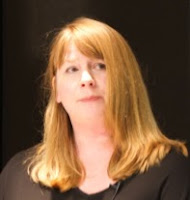NUJ general secretary Michelle Stanistreet in the Guardian on the decline of specialist journalists: "Newspapers which have shed their specialists – putting them in the line of fire during redundancy rounds because they were probably older and more expensive – have pursued a shortsighted policy. These are the people who come in with the best stories and usually have a feature or two up their sleeves if holes need filling."
Oxford Mail editor Simon O'Neill launching a campaign against weakening the Freedom of Information Act: “The Act is, if I am not mistaken, about to be severely curtailed and made subject to hefty charges, all because a few politicians who got caught fiddling their expenses and some well-remunerated Sir Humphreys see it as a pain in the proverbial butt. That must not be allowed to happen for the sake of a government and society that is truly open. This is our information, not theirs.”
The Press Association, in a submission to the Freedom of Information Commission on the possible introduction of charges for FoI: “Requests for internal review, or appeals, would, under a charging system, almost certainly be beyond the reach of the PA, as they would for all but the wealthiest news organisations."
The Sunday Times [£] on the Government's plans for a new Bill of Rights to replace the Human Rights Act: "The bill will grant soldiers and journalists greater protection from people using human rights law to sue for damages. There will be an explicit statement backing 'freedom of expression' for the press."
Simon Jenkins in the Guardian: "Any journalist acquainted with professional sport over the past half century has known about drugs. We were told the Ben Johnson scandal at the 1988 Olympics would put a stop to doping. Nothing put a stop to it. The money and prestige is too great. In the case of soccer’s Fifa, it was clear for decades that Sepp Blatter’s operation was rotten to the core. A lone British journalist, Andrew Jennings, struggled to expose the IOC and Fifa’s Blatter, to the silence or ridicule of British representatives on both bodies."
Adele, interviewed in Rolling Stone: "There's a lot of things I don't think I'll ever get 'round to doing. Not because I'm famous, but just because I just don't think I'll ever have the time. Like being a journalist, or like being a teacher."
MP John Mann in the House of Commons, quoted by Press Gazette: "Evidence from the University of Reading shows that if people buy a newspaper, they will live longer. Why will they live longer? Because some of the people who buy newspapers on a daily basis walk to buy them and walk home. By doing that, if people buy The Sun, the Daily Mirror, the Daily Mail or even The Daily Telegraph, they will live longer. I do hope the journalists are listening: that ought to be their banner headlines, because it is true. A bit of activity on a daily basis assists, which is the beauty of the great outdoors."
Kelvin MacKenzie in the Sun after prison officer Amanda Watts was jailed for a year for selling stories to the paper about George Michael : "So what did Amanda Watts, 43, who worked at HMP Highpoint, Suffolk, do that earned her such a long sentence? She revealed who visited Michael and gave The Sun a sketch of the singer’s cell. Big deal. Old Bailey juries repeatedly refused to convict journalists for paying public officials so when a judge gets a chance to make an exemplary sentence he takes it with both hands."
Noel Gallagher asked in an Esquire interview by Alex Blimes if he has any hobbies:“This is my hobby!...
Blimes: “You mean, music?“
Gallagher: "No! This: doing interviews. I fucking love it. I could do this all day long. It’s sick.”
Blimes: “Why do you love it so much?”
Gallagher: “Because I get to be a gobshite, and I get to do that thing: to be the last of a dying breed.”
[£]=paywall
Blimes: “Why do you love it so much?”
Gallagher: “Because I get to be a gobshite, and I get to do that thing: to be the last of a dying breed.”
[£]=paywall










No comments:
Post a Comment